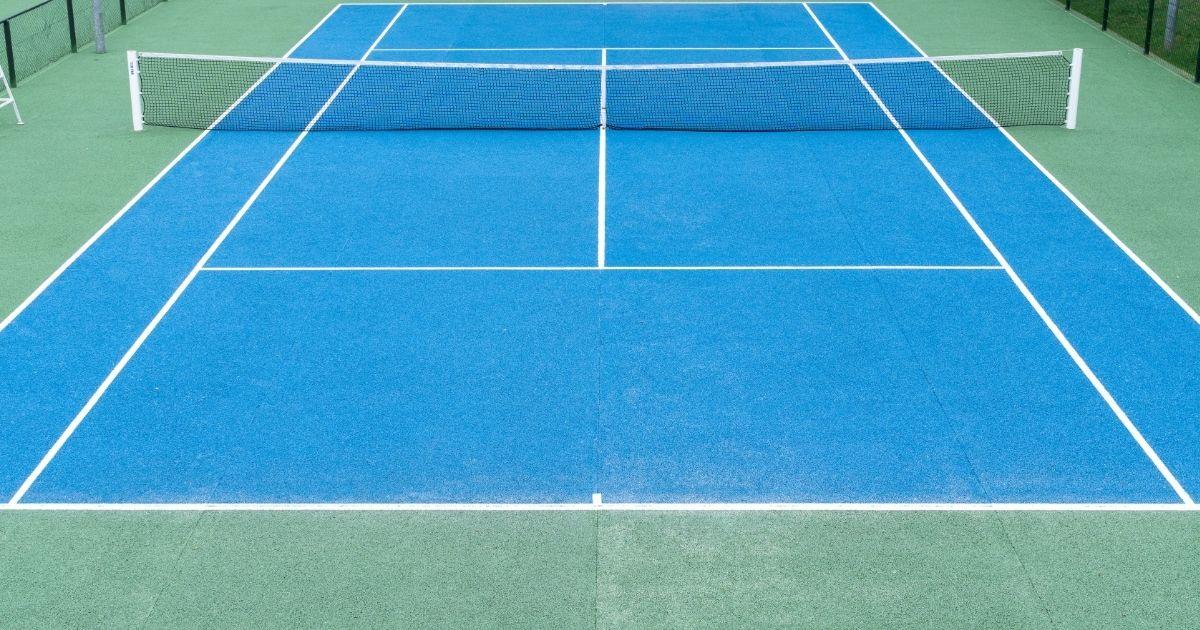
How Thick Should a Concrete Slab Be for a Tennis Court? | ProCourts KC
How Thick Should a Concrete Slab Be for a Tennis Court?
TABLE OF CONTENTS
A well-constructed tennis court offers a blend of durability, functionality, and performance. One of the critical components of building a long-lasting tennis court is determining the appropriate concrete slab thickness. For property owners, sports facility managers, and institutions in Kansas City and Nearby Areas, understanding this aspect is vital for constructing or upgrading a tennis court that meets professional standards.
Why Slab Thickness Is Crucial for Tennis Courts

Ensures Structural Integrity
The thickness of the concrete slab directly impacts the court’s structural strength. A properly designed slab prevents cracks, uneven surfaces, and long-term structural issues, ensuring the court remains safe and functional.
Supports Long-Term Durability
Tennis courts endure constant wear from gameplay, foot traffic, and environmental conditions. A thick and well-laid slab can withstand these stresses over time, minimizing maintenance costs.
Enhances Playing Performance
An evenly poured and appropriately thick slab ensures consistent ball bounce and player safety, enhancing the overall playing experience.
Recommended Concrete Thickness for Tennis Courts
Standard Thickness Guidelines
Experts recommend a concrete slab thickness of 4 to 6 inches for tennis courts. This range accommodates most usage scenarios and ensures the structural integrity needed for a high-performance surface.
Factors Influencing Thickness
Soil Conditions
In areas with soft or unstable soil, a thicker slab may be necessary to provide adequate support and prevent settling. Soil testing is essential before construction.
Usage Requirements
Residential Courts: Courts for private use typically fall on the lower end of the thickness range.
High-Traffic or Commercial Courts: Facilities with heavy foot traffic or professional play often require slabs closer to 6 inches.
Climate Considerations
The Kansas freeze-thaw cycles can cause cracks and shifting if the slab is too thin. A robust slab combined with proper drainage systems helps combat these issues.
Importance of Base Preparation and Drainage
Proper Base Layers
A well-prepared base ensures the slab remains stable over time. This typically includes:
Compacted Soil: The first layer, providing a firm foundation.
Gravel Base: Enhances drainage and reduces movement caused by soil shifts.
Effective Drainage Systems
Without proper drainage, water can accumulate beneath the slab, leading to cracks and weakening the foundation. Installing a drainage system around the court is crucial to longevity.
Why Choose ProCourts for Tennis Court Construction?

Procourts Project -Tennis Court
Expertise in Kansas Conditions
ProCourts KC specializes in building tennis courts that withstand Kansas City’s unique climate and soil challenges. Our team’s knowledge ensures every project is tailored to the local environment.
Comprehensive Services
From initial design to installation and resurfacing, ProCourts KC offers end-to-end solutions for tennis court construction. We handle everything from soil testing to finishing touches.
High-Quality Materials
We use premium materials and proven techniques to deliver courts that balance durability, functionality, and aesthetic appeal.
Frequently Asked Questions About Tennis Court Construction
Can I use a thinner slab for a tennis court?
While thinner slabs may reduce upfront costs, they are more prone to cracking and structural issues, especially in high-traffic or challenging soil conditions. A minimum thickness of 4 inches is recommended.
How do I prevent cracks in a concrete tennis court?
Prevent cracks by ensuring proper base preparation, installing effective drainage systems, and using high-quality materials. Regular maintenance also helps address minor issues before they escalate.
How long does it take to install a tennis court foundation?
The timeline depends on site conditions, weather, and project complexity. Typically, it takes 2-3 weeks to prepare the site and pour the concrete slab.
Conclusion
Determining the correct concrete slab thickness is a critical step in constructing a durable and high-performing tennis court. By considering factors like soil conditions, usage, and climate, property owners and facility managers can ensure their courts stand the test of time.
ProCourts KC has the expertise to bring your tennis court vision to life. Whether you’re building a new court or upgrading an existing one, our team is here to help.
Ready to build your tennis court? Contact ProCourts KC today for a free consultation or estimate. Trust Kansas City’s experts in tennis court construction for a durable and professional installation.


